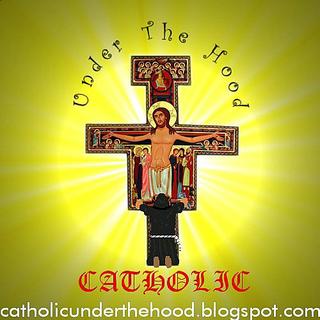Reflections on Evolution, Creation and Catholicism - Part II
In the face of such difficulties, how does Catholicism respond to evolutionary theory?
Catholic teaching does not see any inherent conflict between the teachings of faith and science provided each is properly understood. John Paul II, asserts, “Rightly comprehended, faith in creation or a correctly understood teaching of evolution does not create obstacles: evolution in fact presupposes creation; creation situates itself in the light of evolution as an event which extends itself through time – as a continual creation – in which God becomes visible to the eyes of the believer as ‘creator of heaven and earth’.” In fact, John Paul calls evolution “more than a hypothesis” because of the convergence of several discoveries regarding it made by independent scientific studies. The International Theological Commission states that because of these converging discoveries it is possible “to make a convincing case for the origin of the human species in Africa about 40,000 years ago in a humanoid population of common genetic lineage.” [International Theological Commission, “Communion and Stewardship: Human Persons Created in the Image of God”, Origins 34, no. 15 (23 September 2004]
Yet, evolution needs to be understood in a particular way in order to be compatible with Catholicism. First, while evolution can be used to understand the material processes which guided creation, it cannot be understood as denying the responsibility that faith has for discerning the reasons for creation – i.e., that creation is the result of the free love of God who created humanity in his image and likeness. This truth is seen as beyond scientific investigation. For example, the International Theological Commission speaks of an “ontological leap” from the animal to the human. Therefore, the explanations for humanity’s existences lie in metaphysics and not in empiricism.
Furthermore, any Catholic understanding of evolution should also accept that the human soul is not the result of any “evolutionary process” but is “created immediately by God.” While it is possible that human body evolved from antecedent living beings, the human soul, “on which man’s humanity definitively depends” is of a spiritual rather than a material nature. Thus, the classification of a living being as human depends not on biological development, but on the presence of a human soul. Therefore, “the first true human, i.e. possessed of a human soul, need not have been evolutionarily a finished product.” [See Earl Muller, S.J., “The Magisterium and Human Origins”, The National Catholic Bioethics Quarterly 3, no. 3 (Autumn 2003)]
Tomorrow, I'll look at Evolution and Original Sin
Catholic teaching does not see any inherent conflict between the teachings of faith and science provided each is properly understood. John Paul II, asserts, “Rightly comprehended, faith in creation or a correctly understood teaching of evolution does not create obstacles: evolution in fact presupposes creation; creation situates itself in the light of evolution as an event which extends itself through time – as a continual creation – in which God becomes visible to the eyes of the believer as ‘creator of heaven and earth’.” In fact, John Paul calls evolution “more than a hypothesis” because of the convergence of several discoveries regarding it made by independent scientific studies. The International Theological Commission states that because of these converging discoveries it is possible “to make a convincing case for the origin of the human species in Africa about 40,000 years ago in a humanoid population of common genetic lineage.” [International Theological Commission, “Communion and Stewardship: Human Persons Created in the Image of God”, Origins 34, no. 15 (23 September 2004]
Yet, evolution needs to be understood in a particular way in order to be compatible with Catholicism. First, while evolution can be used to understand the material processes which guided creation, it cannot be understood as denying the responsibility that faith has for discerning the reasons for creation – i.e., that creation is the result of the free love of God who created humanity in his image and likeness. This truth is seen as beyond scientific investigation. For example, the International Theological Commission speaks of an “ontological leap” from the animal to the human. Therefore, the explanations for humanity’s existences lie in metaphysics and not in empiricism.
Furthermore, any Catholic understanding of evolution should also accept that the human soul is not the result of any “evolutionary process” but is “created immediately by God.” While it is possible that human body evolved from antecedent living beings, the human soul, “on which man’s humanity definitively depends” is of a spiritual rather than a material nature. Thus, the classification of a living being as human depends not on biological development, but on the presence of a human soul. Therefore, “the first true human, i.e. possessed of a human soul, need not have been evolutionarily a finished product.” [See Earl Muller, S.J., “The Magisterium and Human Origins”, The National Catholic Bioethics Quarterly 3, no. 3 (Autumn 2003)]
Tomorrow, I'll look at Evolution and Original Sin










0 Comments:
Post a Comment
<< Home